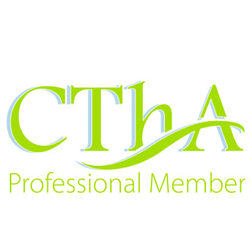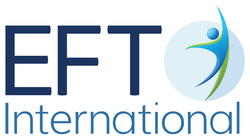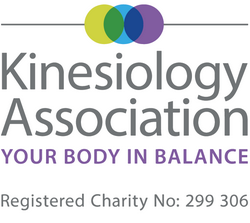Emotional-Mental Techniques

Emotional - Mental
Through her desire to fully integrate mind and body work together Sonia has studied EFT Therapy (emotional freedom technique).
This is a powerful holistic healing technique, proven to effectively resolve a range of issues including; stress, anxiety, phobias, emotional disorders, chronic pain, addiction, weight control, and limiting beliefs. It is based on the combined principles of ancient Chinese acupressure and modern psychology, such as NLP. She is now an Advanced Practitioner.
EFT
EFT (Emotional Freedom Techniques) or "Tapping" is a body/mind self-help method. It combines a gentle touch together with mindful and vocal attention to thoughts and feelings. EFT involves tapping with our fingertips on acupuncture points on the hands, face and body while focusing (temporarily) upon an issue we wish to resolve.
Developed by engineer Gary Craig and inspired largely from the work of Dr Roger Callahan, EFT is easy to learn and flexible enough to be used by anyone. As we explore EFT for ourselves, we become empowered to respond to our own emotional states and help ourselves feel better. With the aid of this simple and natural healing tool, we can discover just how our thoughts, beliefs, and emotions affect our bodies and our lives and how we can more consciously make the changes we desire.
EFT works with the body's subtle energy system a network of energy pathways, called meridians in Traditional Chinese Medicine. Some people are very sceptical of the existence of pathways that previously could not be detected. However, with the development of more sophisticated medical technologies, the existence of the primo vascular system has been established. These documented pathways are accessible via specific locations on the body called acupoints.
EFT has been called a psychological version of acupuncture, as the simple process of tapping certain acupoints while focusing on an emotional upset has the effect of releasing the intense charge of troubling emotions. When we are upset, and uncomfortable emotions like worry, fear, or guilt arise, it feels as if our systems are no longer in a state of peaceful harmony.
We can think of EFT as helping reboot our personal energy system in relation to the issue at hand, similar to the way we reboot a computer, which has gotten stuck or has crashed. EFT can help us reset our personal energy system little by little at a pace that is right for us. Once our system begins "rebalancing" as we tap, we usually start feeling better, more relaxed, peaceful and serene in relation to our specific problem or issue. Our body, mind, and emotions are intricately connected. When we apply EFT to something that is bothering us, we can feel the shift in our thoughts, our feelings, and our bodily responses (i.e. stress or tension).
Benefits of an EFT treatment:
Trauma
Anxiety
Depression
Chronic pain
Stress
PTSD
Weight issue
Other problems
https://eftinternational.org/discover-eft-tapping/what-is-eft-tapping/
NLP
NLP stands for 'Neuro Linguistic Programming'. "Neuro" stands for the mind and how it influences and controls the body. It is much more than just the physical brain; rather, it is the way that the brain affects the body on both conscious and subconscious levels.
"Linguistic" stands for the way a person uses language (words, tone, statements, questions, etc.). Language is a powerful window into what a person thinks, and by observing a person's language, it is possible to discover a great deal about him or her.
The last part of the name "Programming" creates confusion when it is not correctly defined.
This part of NLP is not about programming a person to think certain things, do things a certain way, or feel a certain way. Instead, programming is the process of examining the patterns and thinking a person uses habitually (their programs) and how they affect that person's life.
Everyone has their own programs, but many people simply aren't aware of them and the impact they have.
NLP has been around for over 30 years, so it is not a fad or passing fancy. It is roots are in the collaborative work of Richard Bandler, John Grinder, and Gregory Bateson in the early 1970's. Through observation and study, they created models for how a person's mind, language, and patterns of thinking combine to create what that person perceives as reality.
From these early beginnings, NLP has evolved and grown as technique that can be used in a variety of situations. It is based on behaviour and observation with the goal of uncovering life patterns that work well and life patterns that do not work well. Once those patterns are identified, it is possible to go about strengthening what works and changing what does not work.
NLP is a collection of models techniques and strategies for modelling excellence, in order to help us better understand how our thought processes and behaviour, including how the language we use, influences the way we think and the results we get. Modelling excellence in any field enables us to bring about a positive change in ourselves and others.
Related Pages

EFT - Emotional Freedom Tapping
EFTEFT (Emotional Freedom Techniques) or "Tapping" is a body/mind self-help method. It combines a gentle touch together with mindful and vocal attention to thoughts and feelings. EFT involves tapping ...read more >>
NLP - Neuro Linguistic Programming
NLPNLP stands for 'Neuro Linguistic Programming'. "Neuro" stands for the mind and how it influences and controls the body. It is much more than just the physical brain; rather, it is the way that the ...read more >>
Next Previous Blog/News
posted in Body on 18 December 2020
I heard that some people don't know what to do with all the time on their hands during this "stay home, stay safe" period. Others have begun amazing new hobbies or are running around with their hair on fire juggling work from home, homeschooling, hom...
Next Previous Testimonials
Very Supportive and Empowering
"I suffer from a long-term sciatic problem that is severe and causes a good deal of pain. I have been working with Sonia for three months and my core strength has improved, as has all the muscle strain around the weak part of my spine. My osteopath says that he feels a real improvement. I love my sessions with Sonia, they are always varied and especially tailored to fit my very particular needs. She is thorough, kind and attentive. I have recommended her widely and will continue to do so." Jennifer S
Beyond a Workout
"I have always been very active having played a number of sports to a very high standard. My focus has always been on strength and fitness and I realised after a couple of minor injuries that I had neglected some key principles. Working with Sonia was of course very different to working out in a gym or to any other training regime I had been involved in but it has so far had a huge impact on everything that I do - from walking to the tube and avoiding recurring foot injuries to my posture at work and also in the gym. I have learnt things about my body that I never knew and I now wish I had known before. I thought her style of pilates would be interesting and a change from my normal workouts but it has had a much deeper impact than I could have imagined. I now know so much more about my body and can put that knowledge to use in my workouts and everyday fitness regime. Just because you go to the gym 3 times a week does not mean you don't "need" Sonia - in fact I would suggest the opposite. In addition to this, on a personal level, Sonia always makes her sessions interesting. She is an interesting and engaging person who will make an introduction to Pilates Yoga or Somatic Movement a most worthwhile experience and even experts will benefit from her broad knowledge about the body and the mind. I couldn't recommend Sonia more highly to everyone, of all ages and all levels of fitness and experience." Graham H







